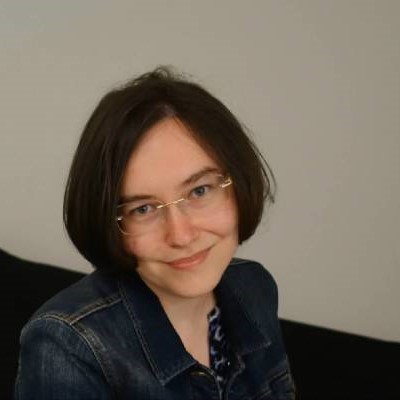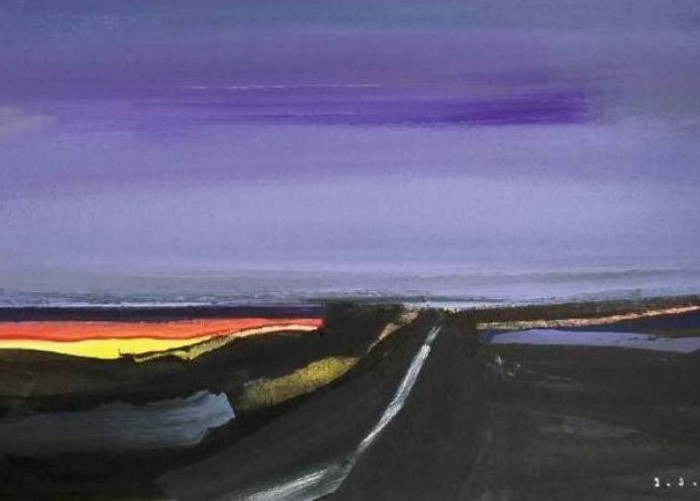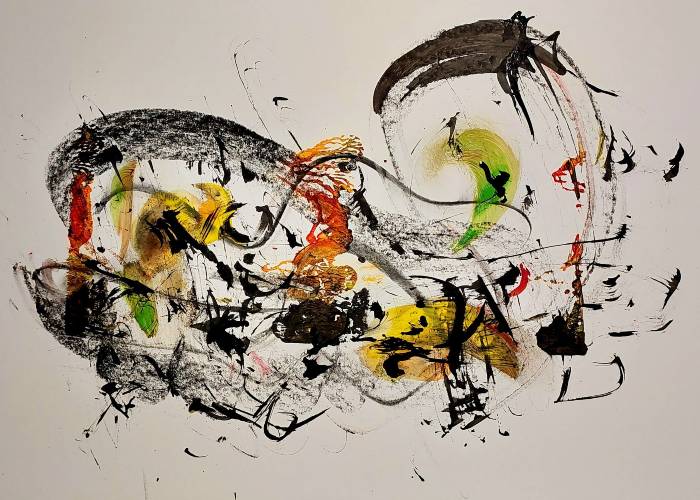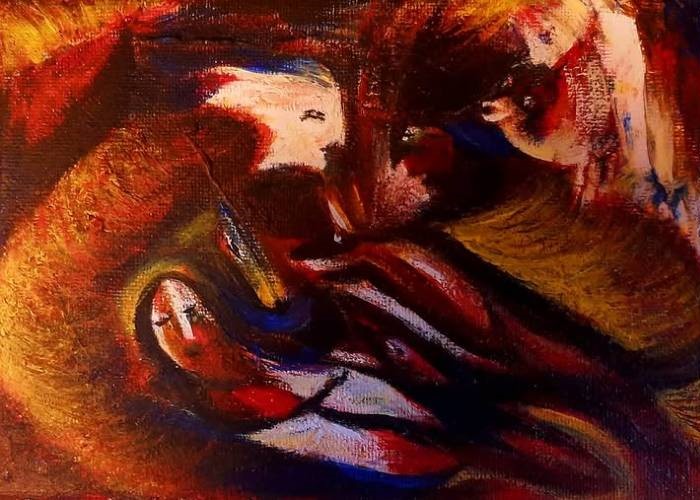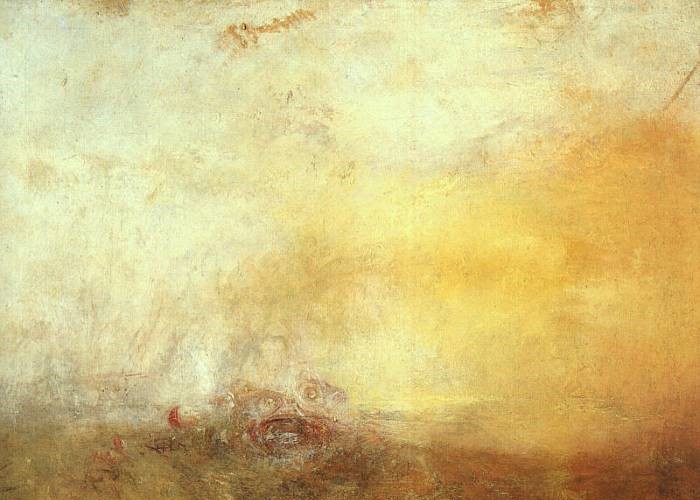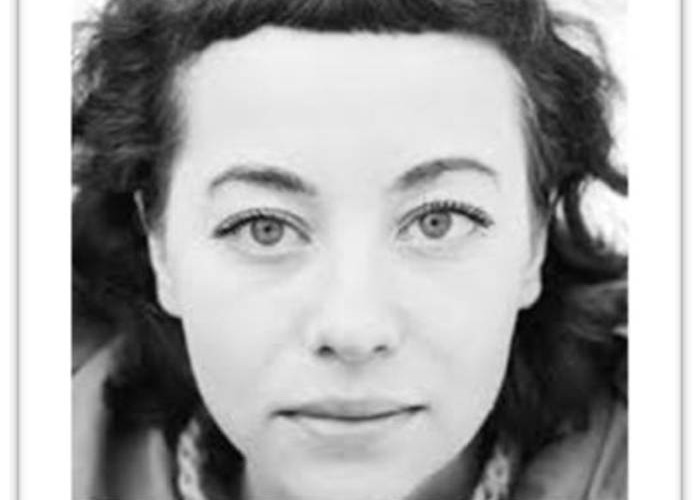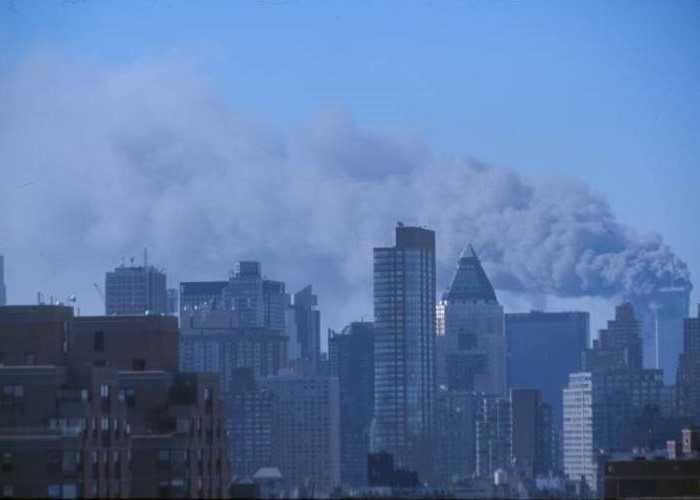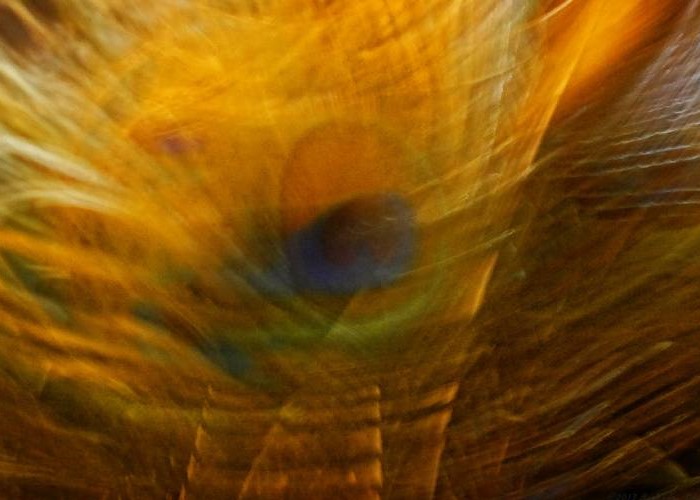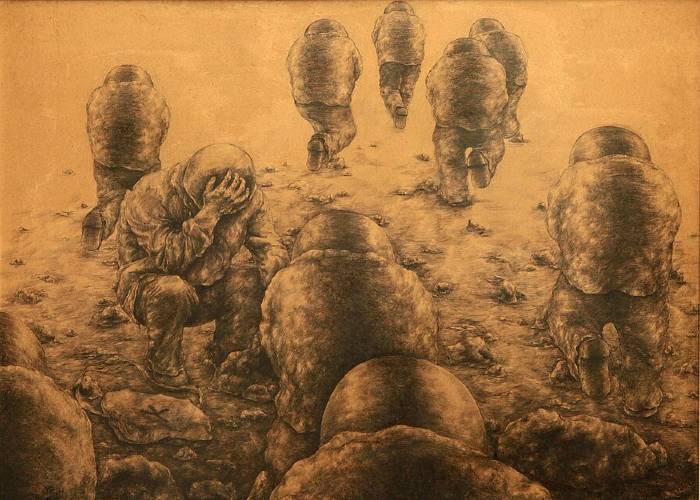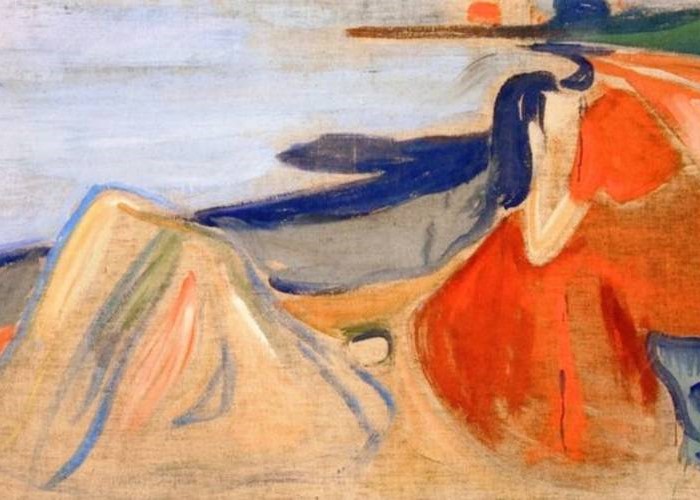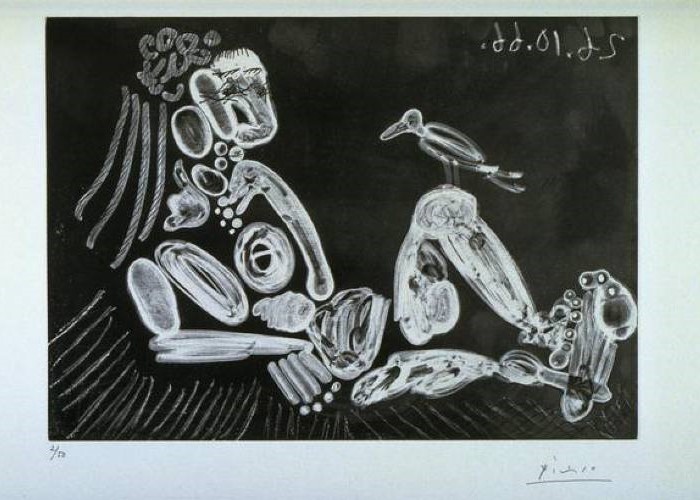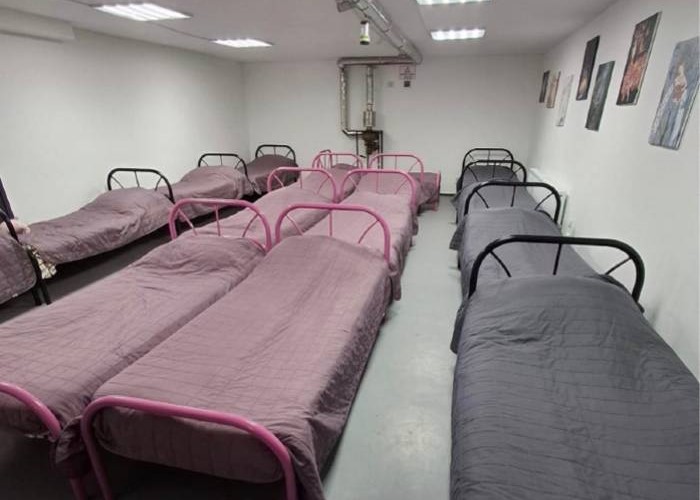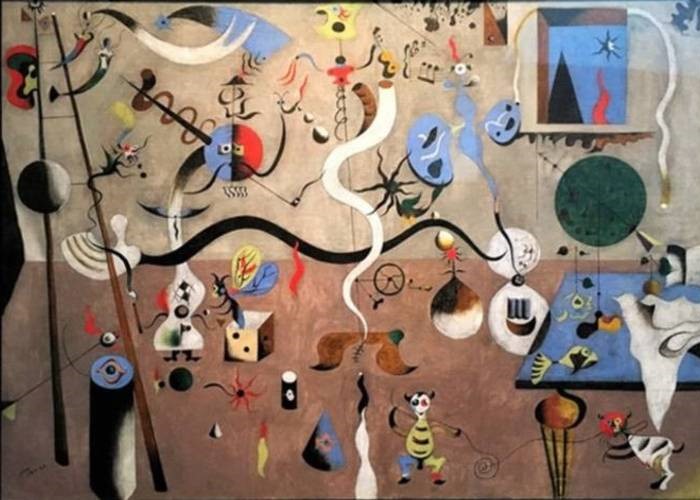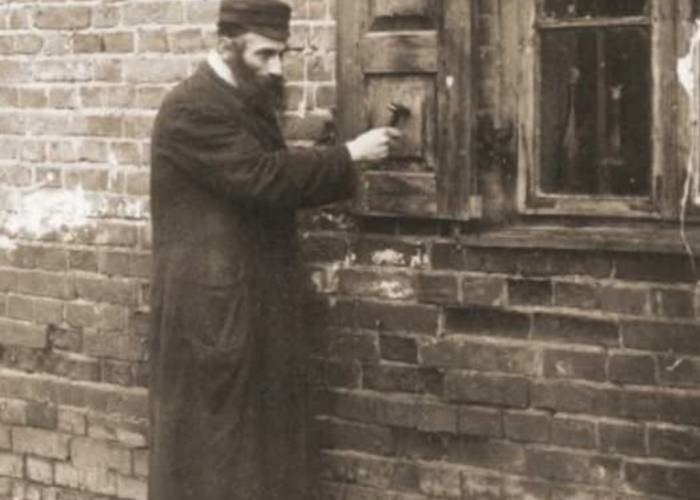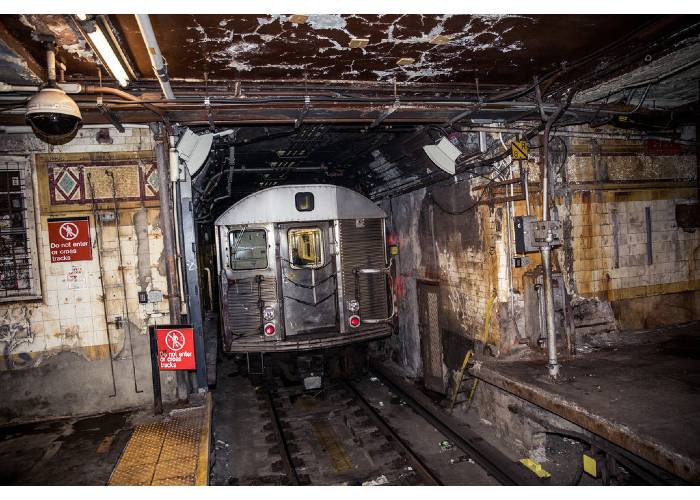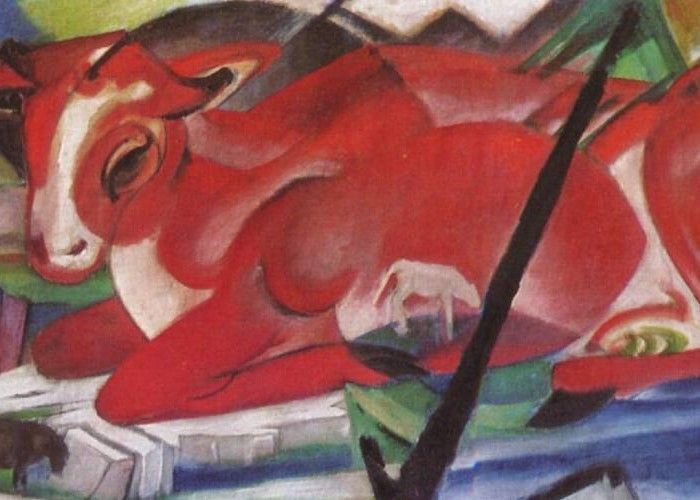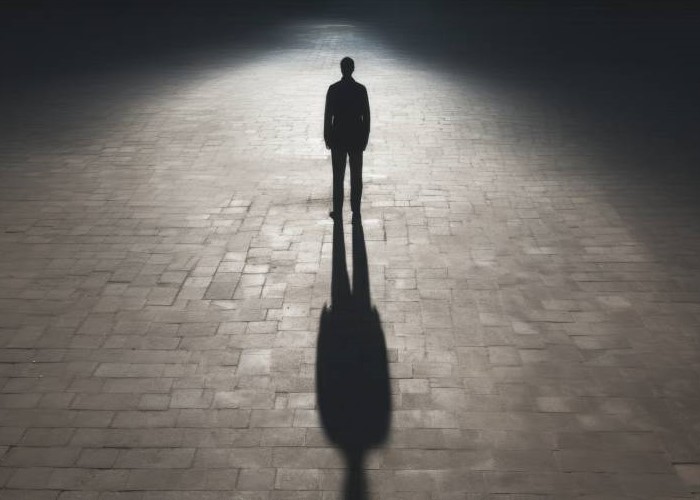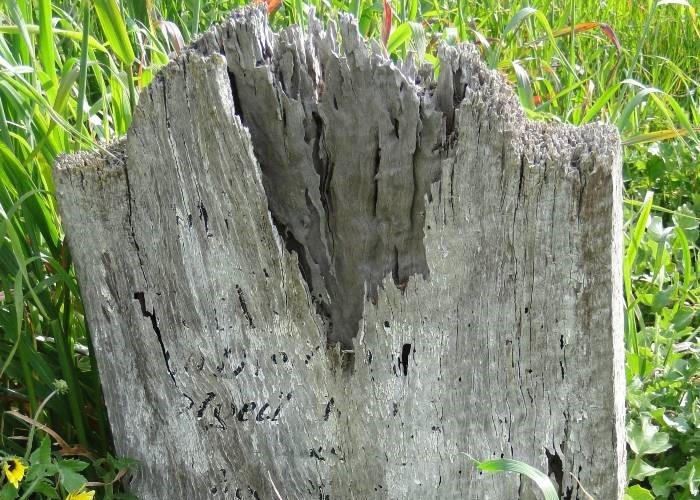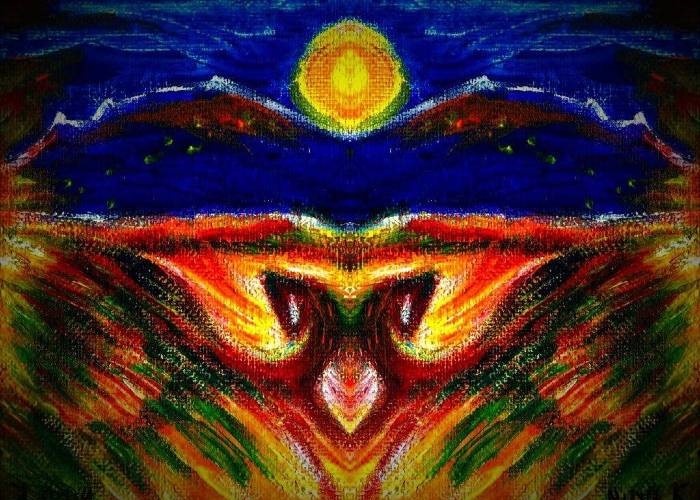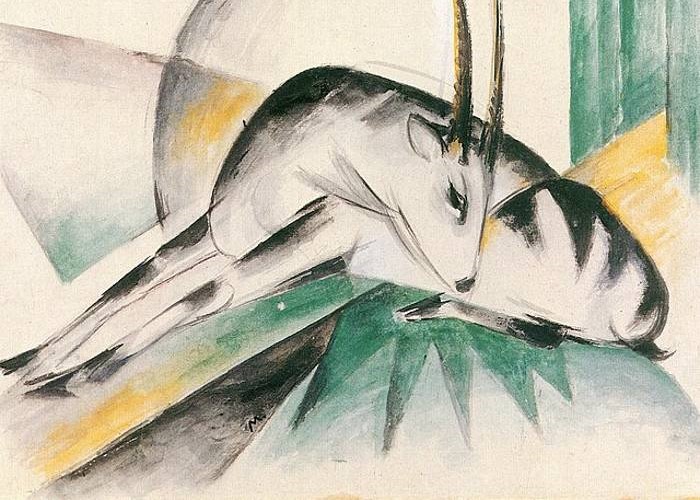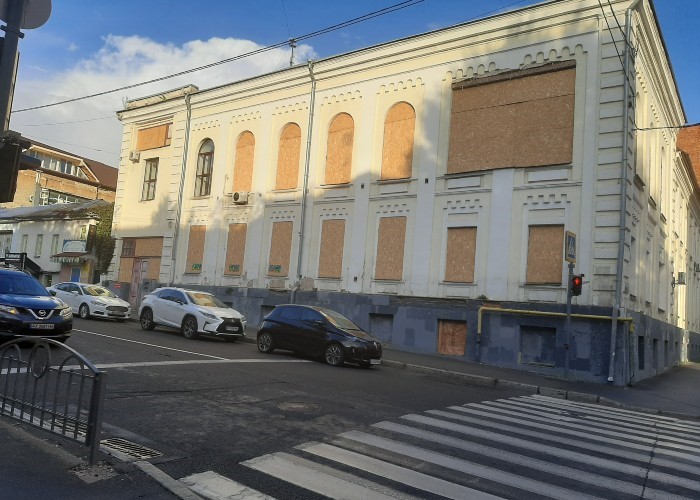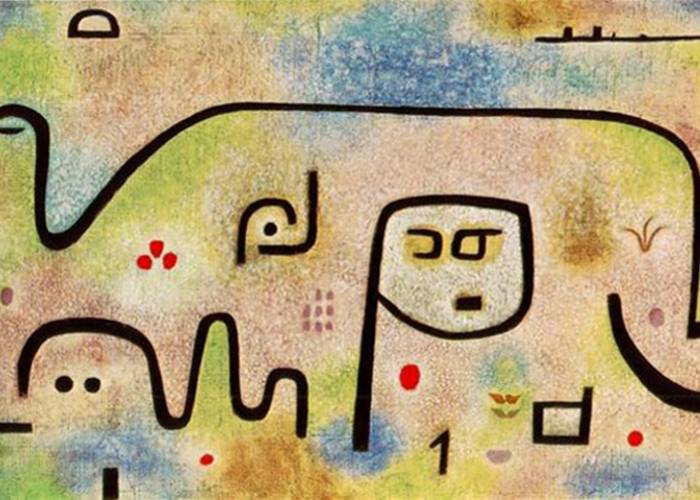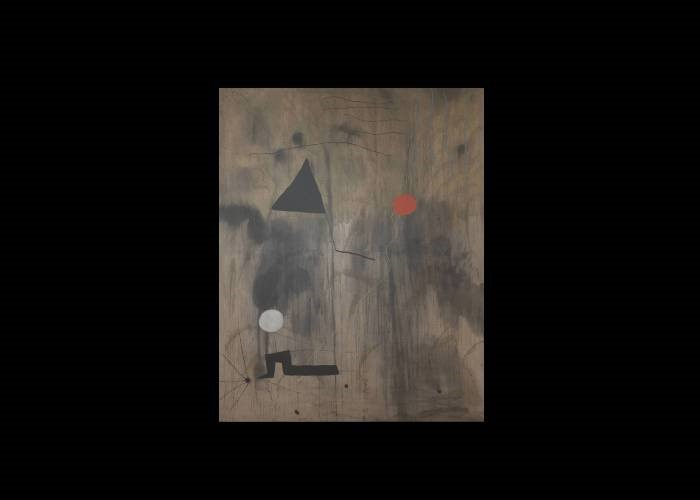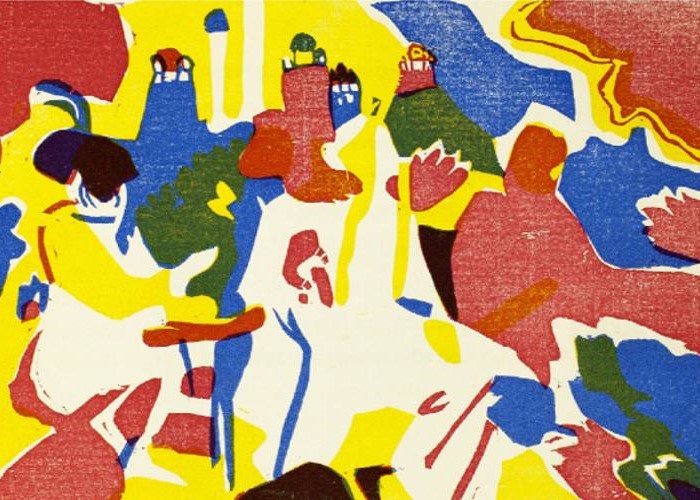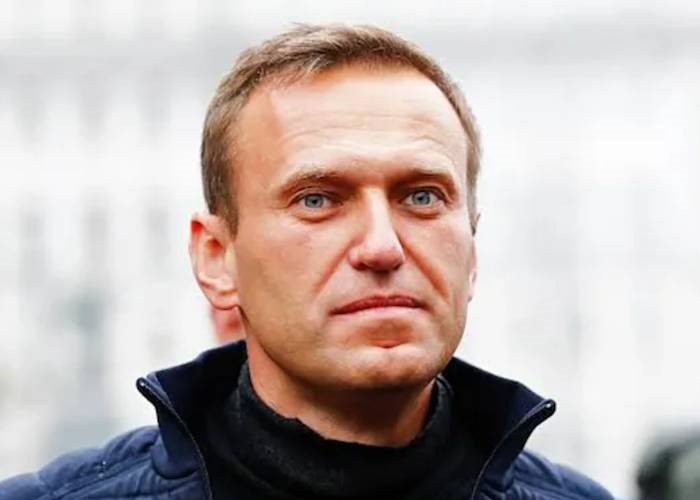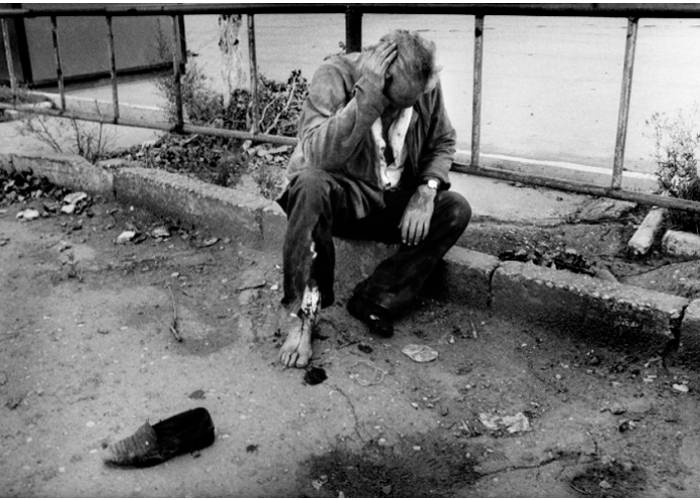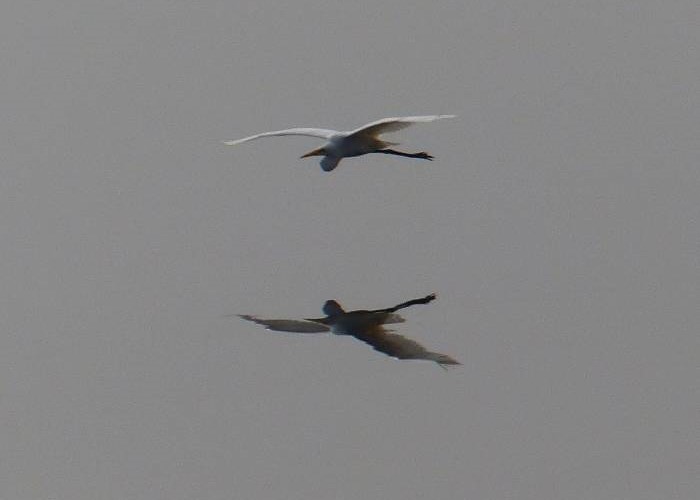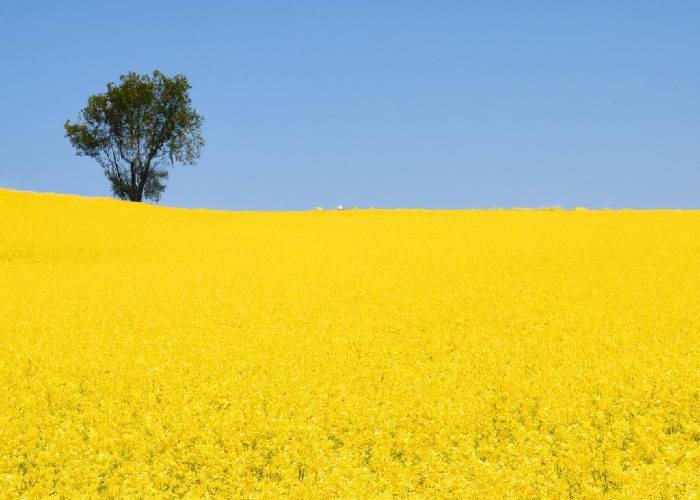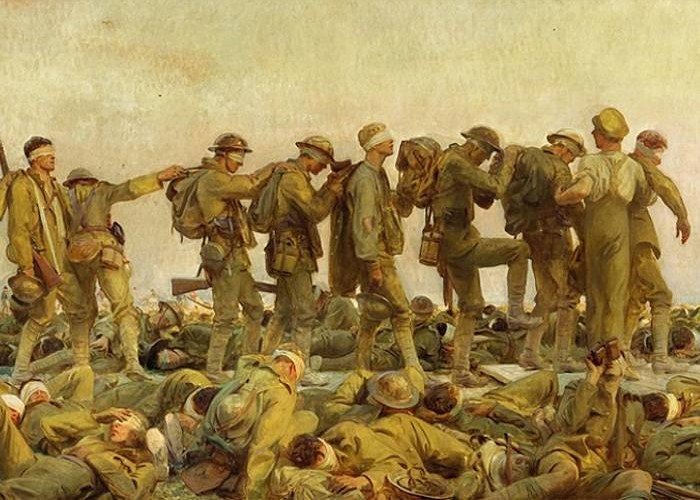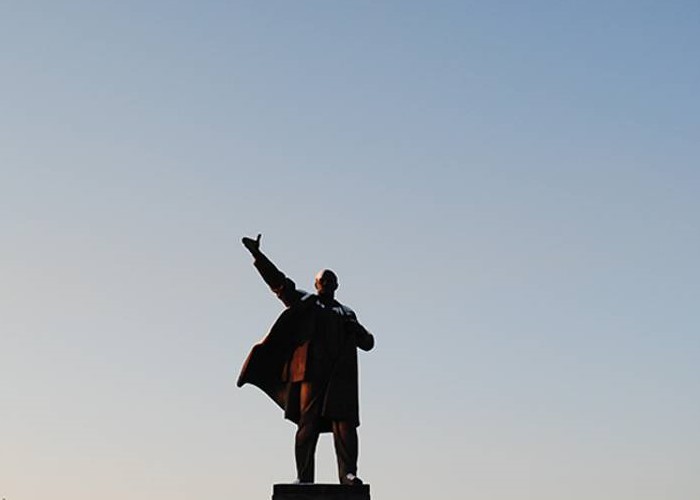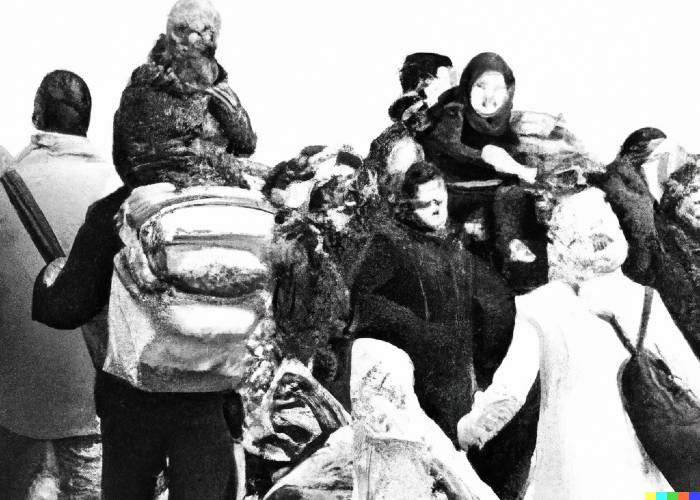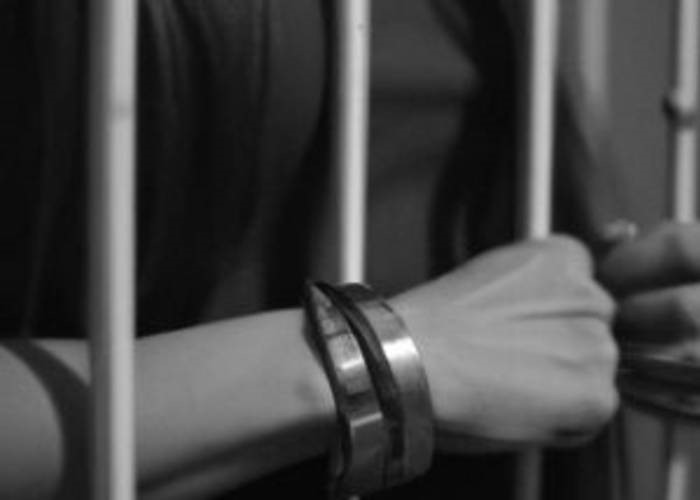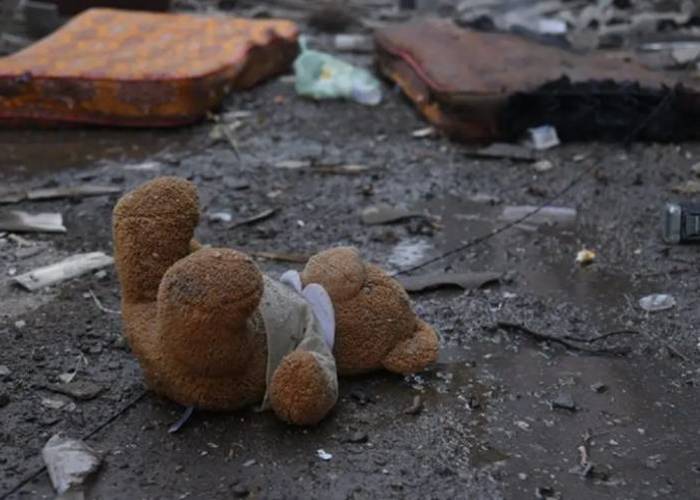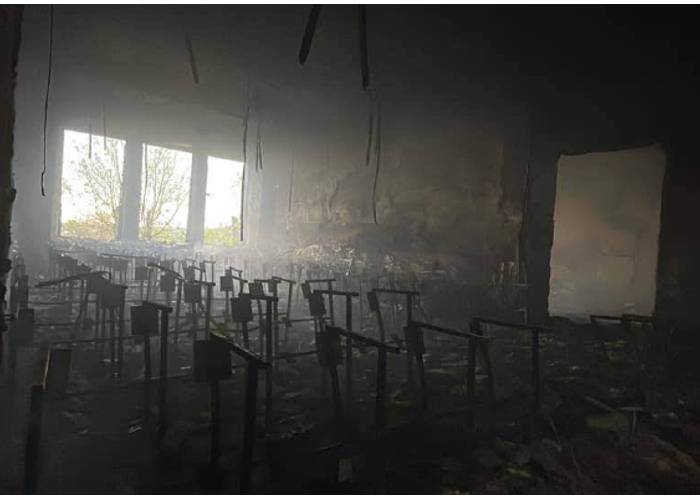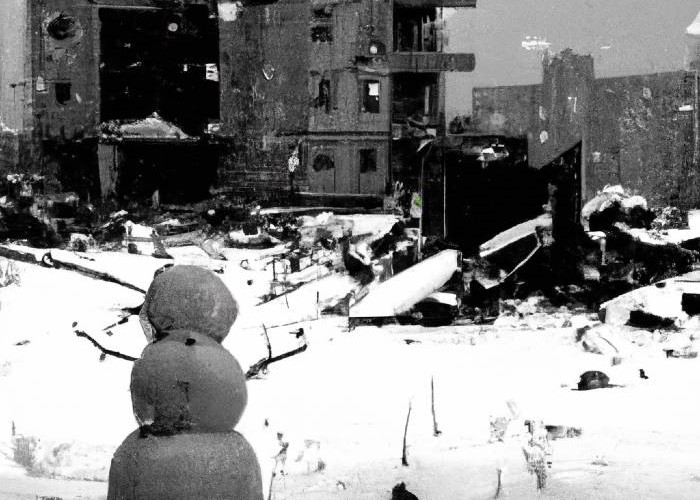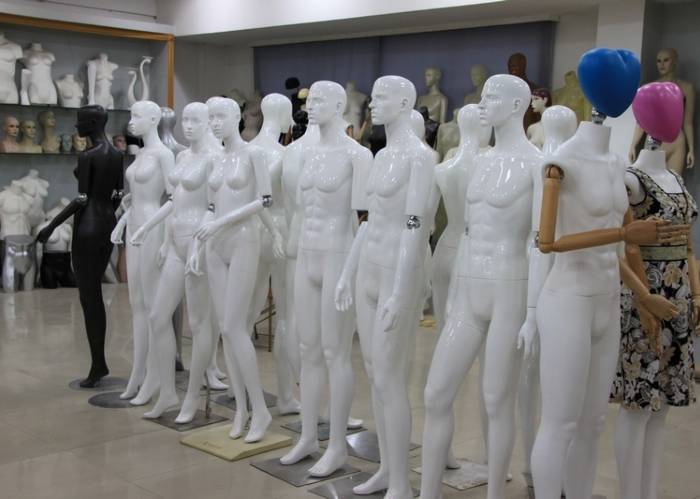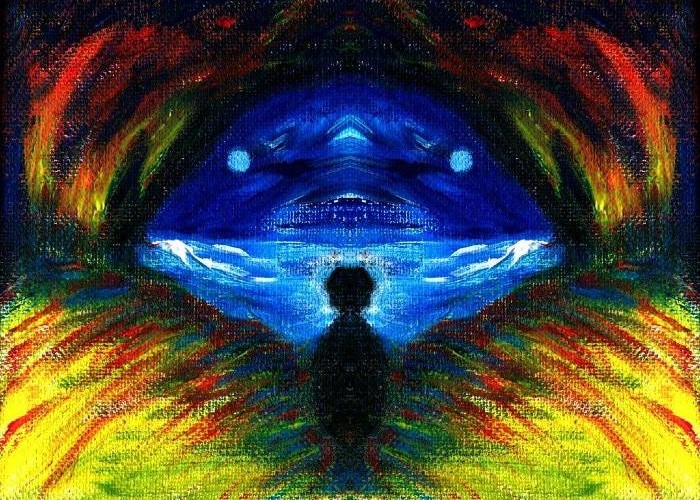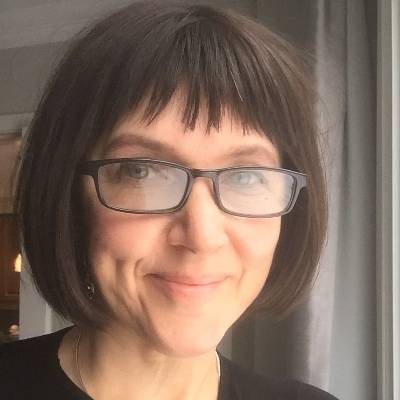In that hour of blistering agony,
When you’ll have to pay for it all,
Don’t say that you never got it,
Or that you got it all wrong.
Blaring sirens over the rooftops,
The last of the food rations gone.
Don’t say that you never heard this,
Or were too far to see what went on.
All those left under the rubble,
The coldness of underground walls—
Don’t say that you never knew this,
That you were hoodwinked, that’s all.
The rockets that race through the heavens,
Countless bodies blasted to shreds…
You’ll surely come up with some lie,
how you never meant anything bad.
You’ll say politics is always so murky,
And nowadays no one’s a saint,
And we’re all equally guilty
When a rocket goes through a pane…
But when darkness at long last disperses,
And the endless night finally retreats,
Don’t say that you can’t believe it,
That you never knew this was real.
So when all the fires stop burning,
And the grass grows on the ashes,
Don’t waste your time and your words
By pleading with us for compassion.
Don’t hope that we’ll become brothers,
That one day this too shall pass,
You branded your entire nation
With a Z half-swastika, like a curse.
And no one will share the sorrows
Of your pitiful hybridized woes
In that hour of blistering agony,
When you’ll have to pay for it all.
***
If we could somehow breath
Life into what’s destroyed,
Redeem another’s sin,
And touch an anguished soul;
Recast, remould, take on
The pain of countless gone,
Spin the globe in reverse,
So that we could be close.
Extract time by the drop
From nights we spent awake…
How could it be, dear God,
That we’re still so far away?
We don’t know how to be martyrs,
Not ready to die on the hour,
We don’t even know how to give
What we’ve got to another.
If only we could take our life,
Our strength, our time, our air,
And send it coursing as blood
Through their bloodless veins.
We’d touch their open wounds,
Quelling their cruel pain,
And then we’d dissolve into fog,
Out of everyone’s way.
To shoulder their distant hell,
helping all of them bear it…
So tell us, dear God, why is it
That we can’t get any nearer?
***
Let’s remember this light, diffuse and faded,
Since “now” is worth more than any “after,”
While the fire hasn’t leapt up the windows
And the walls haven’t folded like cardboard.
See that sunray dance on the balcony,
Watch it pause, then sparkle and flash–
While a tsunami of cement and metal
Hasn’t entombed it under dust and ash.
And even if no light will reach the cellars,
And once again we’ll hear the sirens blare,
We’ll know that the sun still shines on,
And clouds are still floating somewhere.
And if the house be lost, the ruins still remain,
And if the water’s gone, there’s snow for miles.
We’ll live like always, hour by hour,
Knowing that happiness exists still—for a while…
***
Если в огненный час агонии
Вам предъявят за всё счета –
Не твердите, что вы не поняли,
Или поняли всё не так.
Про раскаты сирен над крышами,
Про последний кусок пайка –
Не кричите, что вы не слышали,
Что не видно издалека.
Про оставшихся под завалами
И про холод подвальных стен –
Не внушайте нам, что не знали вы,
Что поверили вы не тем.
Про ракеты, что мчатся по небу,
Про разорванные тела
Вы, конечно, солжёте что-нибудь,
Объясняя, что не со зла,
Что политика – дело чёрное,
Что сегодня никто не свят,
Что мы все виноваты поровну,
Коль в окно залетит снаряд…
Но когда чернота рассеется
И расступится долгий мрак,
Не твердите, что вам не верится,
Что вы думали – всё не так.
И когда отшумят пожарища
И пробьется в золе трава –
Не просите у нас о жалости,
Не расходуйте зря слова.
Не надейтесь, что станем братьями,
Что когда-нибудь всё пройдет.
Полусвастикой, как проклятием,
Заклеймили вы весь народ.
И никто не склонится к горестям
Ваших жалких гибридных бед,
Когда в огненный час агонии
Вы дадите за всё ответ.
***
Если б можно было вдохнуть
Если б можно было вдохнуть
Жизнь – в то, что разрушено,
Искупить чужую вину,
Прикоснуться душами;
Переплавить, перестрадать
За других – не выживших,
Шар земной откатить назад,
Чтобы стали ближе мы;
Из бессонных своих ночей
Время каплями выжать…
Почему же, мой Бог, зачем
Мы не можем быть ближе?!
Не умеем идти на крест,
Умирать ежечасно,
Даже просто отдать, что есть,
Не умеем мы часто.
Как хотелось отдать бы жизнь,
Силы, воздух и время,
Чтобы кровью протечь в чужих
Обескровленных венах;
Чтоб коснуться открытых ран,
Чью-то боль иссушая,
И исчезнуть потом в туман,
Ничему не мешая;
И невидимый ад терпеть,
Помогая вам выжить…
Почему же, мой Бог, ответь,
Мы не можем быть ближе?!
***
Давай запомним свет, рассеянный и блеклый
Давай запомним свет, рассеянный и блеклый,
Ведь каждое «теперь» важнее, чем «потом» –
Пока еще огонь не бросился на стекла,
И стены не дрожат, ломаясь, как картон.
Смотри, как солнца луч метнулся по балкону,
Как вспыхнул, заискрив, и замер на полу –
Пока еще волна железа и бетона
Его не погребла под пыльную золу.
И даже если свет в подвалы не пробьется,
И снова вой сирен звучит издалека –
Мы просто будем знать, что где-то светит солнце,
И все еще под ним клубятся облака.
И если нет домов, останутся каркасы,
И если нет воды, останутся снега.
Мы просто будем жить – как прежде, час за часом,
И знать, что счастье есть – пока еще, пока…
